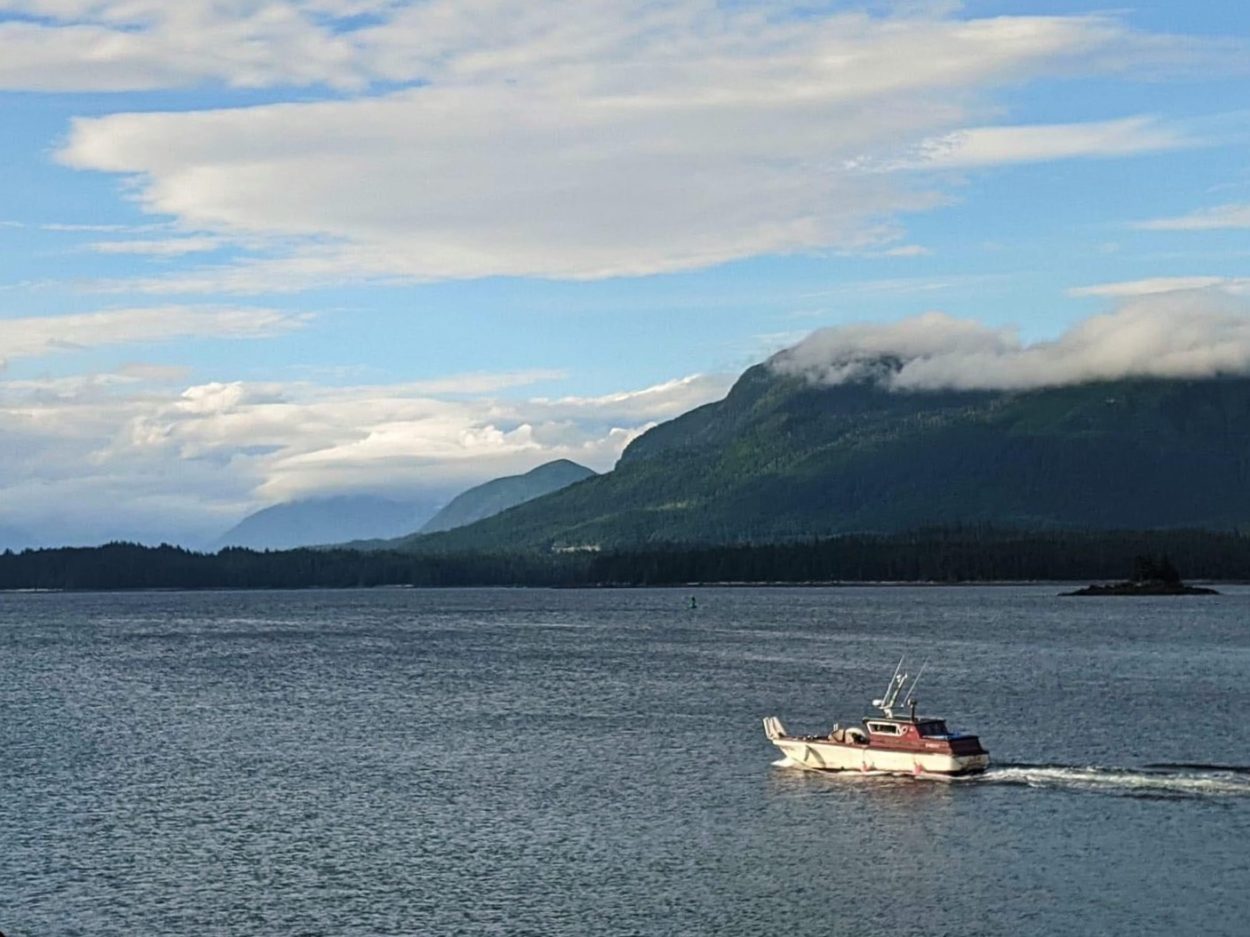
A federal appeals court has affirmed Metlakatla tribal members’ right to fish in their traditional waters without state permits. But a new opinion issued Tuesday by the Ninth Circuit Court of Appeals leaves open the question of where exactly those traditional fishing grounds are.
Metlakatla Mayor Albert Smith welcomed the news.
“This is something that we’ve been fighting for a long time, so we are extremely pleased to know that the Ninth Circuit so strongly supported our fishing rights,” Smith said in a phone interview from Juneau.
Metlakatla’s tribal government sued Gov. Mike Dunleavy and other state officials in 2020. The tribe asserted that the 1891 federal law that created the Annette Islands Reserve, the only reservation in Alaska, guaranteed the tribe fishing rights throughout much of the southern panhandle. Congress passed the 19th-century law after members of the tribe relocated from their previous home in Metlakatla, British Columbia at the invitation of President Grover Cleveland.
Senior U.S. District Court Judge John Sedwick rejected the tribe’s claim and dismissed the case the following year.
Metlakatla appealed to the Ninth Circuit Court of Appeals, which ruled in favor of the tribe last year. The court said Congress guaranteed Metlakatla’s tribal members the right to fish in their traditional waters despite the state’s limited entry program, which limits the number of vessels targeting particular species of fish.
“Alaska’s limited entry program, as currently administered, is incompatible with the Metlakatlans’ off-reservation fishing rights. Fishing had always been, and continues to be, the heartbeat of the Community. Congress’ intent in the 1891 Act was that the Metlakatlans would have off-reservation fishing rights that would ‘satisfy the future as well as the present needs’ of the Community,” wrote Senior Ninth Circuit Judge William Fletcher.
The Ninth Circuit’s three-judge panel initially ruled that Metlakatla tribal members had the right to fish in the state Department of Fish and Game’s Districts 1 and 2. Those encompass areas around Ketchikan’s Revillagigedo Island and the southeastern coast of Prince of Wales Island.
Smith says the tribe has records of its members bringing fish from as far as the Aleutian Chain. But he acknowledges that the tribe’s fishermen largely harvested from waters within a day’s travel of the reserve at the southeastern tip of the state.
“Since time immemorial, we’ve been fishing all of those districts — 1 and 2, all the way down to the border,” Smith said.
But the new opinion notes that the state of Alaska disputes the extent of the tribe’s historical fishing grounds. It’ll be up to the lower court to determine just how far the tribe’s fishermen should be allowed to go.
In its new order, the court also denied a request from the state of Alaska to reconsider its decision or put it before a larger Ninth Circuit panel.
Alaska Department of Law spokesperson Patty Sullivan said in a statement that the Ninth Circuit panel “continues to fundamentally misunderstand the history and legal framework in this case.”
“Even if the Ninth Circuit panel disagreed that the case should be dismissed, it should have merely remanded the case back down to the district court so it could properly vet the factual background,” Sullivan wrote. She said the state is reviewing the opinion and considering its next steps.
Smith says Metlakatla is eager to continue with the case.
“We are ready for the next phase in this case and look forward to finally and permanently restoring our community’s fishing rights. … Wayi Wah!” he said, using a Sm’álgyax phrase that translates to “Let’s go!”
The court’s decision would allow tribal members to fish “for personal consumption and ceremonial purposes, as well as for commercial purposes.” But details of how the decision might be implemented once the case concludes remain unclear.





